Tribal women from Koraput make a clean sweep with traditional brooms
The humble broom has become an empowering source of livelihood for 1,500 tribal families in Koraput district of Odisha. Adivasi women, who earlier used to sell the hillgrass for making the brooms to middlemen for Rs 25 a kilogramme, are now directly selling to the government agencies at double the price.

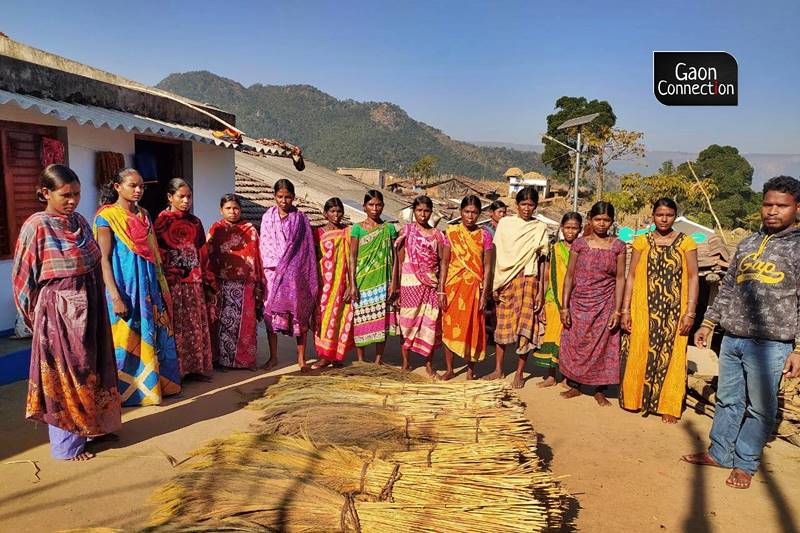
These tribal women have been formally trained to make the brooms. All photos by Ashish Senapati.
Bhubaneswar, Odisha
The broom or phul jhadu you use at home could have come from Odisha where jhadu-making has begun to sweep in profits for many tribal communities in the state, especially from the Koraput district that lies about 485 kilometres south west of the state capital Bhubaneswar.
The district has an abundance of the special kind of hill grass that is used to make these brooms. While the women in tribal communities have been making them for years, it is only now that the broom-making craft is being seen as a sustainable source of livelihood for them.
“We are sweeping away our poverty thanks to this occupation that provides us a livelihood,” Mina Gomanga, a tribal inhabitant of Kotia village in Koraput, told Gaon Connection. “There are nearly thirty families in the village who are making brooms for a living. We collect the raw materials from nearby forests and make the brooms. My family has been doing this for six years now,” Gomanga said.
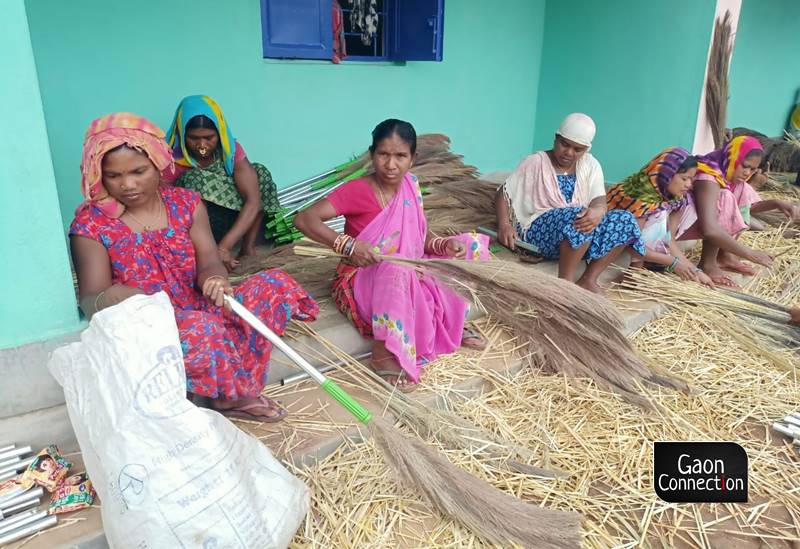
Also Read: Beekeeping gives the Santhal tribal women in Banka, Bihar, a sweet taste of success
Till recently, the tribal inhabitants gathered the hill grass used for making the brooms, and middlemen would buy it from them from local markets at Rs 25 a kilogramme (kg) and sell it elsewhere at a profit.
But due to the intervention of the government-managed Odisha Rural Development and Marketing Society (ORMAS) and Koraput Agro Products Producers Company (KAPPC), things have changed for the better. “We now buy the raw material from the tribal communities directly paying them Rs 50 a kilo,” Roshan Kartik, director ORMAS in Koraput, told Gaon Connection.
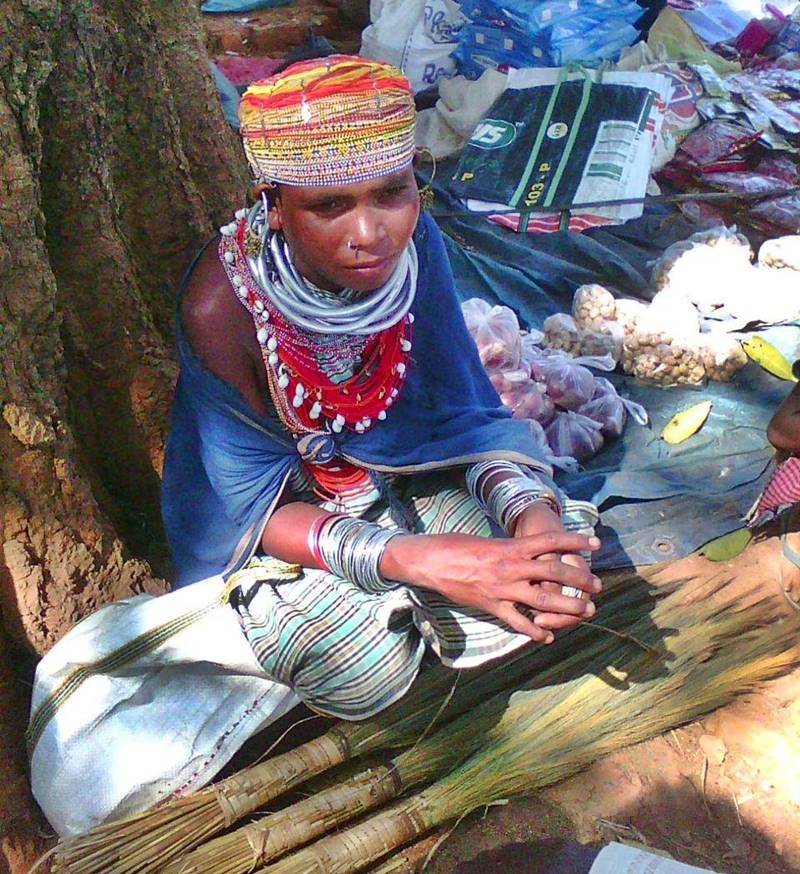
The hill grass is a minor forest produce available in plenty at Pottangi, Semiliguda and Narayanpatna blocks in Koraput district. The tribal communities gather them from the forests and dry them before they are made into brooms.
According to Kartik, nearly 1,500 tribal families in the district have directly benefited from the government’s intervention. Adivasi women get paid Rs 3.50 per broom and they manage to make about 50 brooms a day.
Also Read: From a domestic worker to Padma Shri awardee — here’s how Bihar’s Dulari Devi painted success
Unyda Disari, from Uperkanti village in Simuleigada block, lost her job at a brick kiln where she worked, when it shut down. But, with the help and support of Odisha Rural Development and Marketing Society, the 26-year-old earns a livelihood that takes care of her family. Unyda makes hillgrass brooms through a self-help group she is part of.
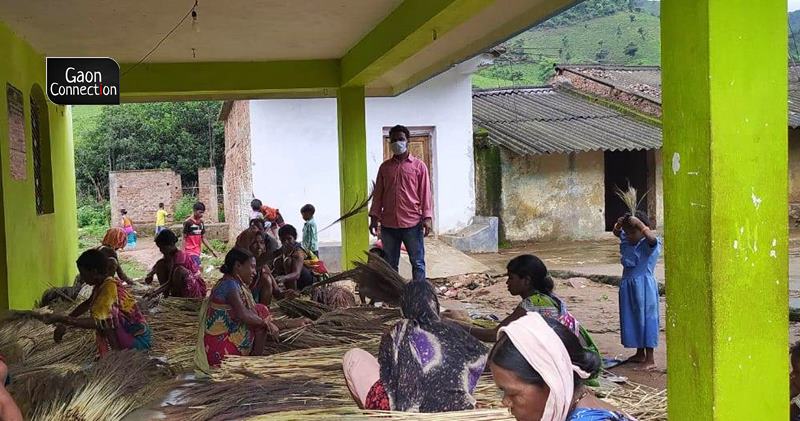
Training the Adivasi women
These tribal women have been formally trained to make the brooms. The Odisha Rural Development and Marketing Society enabled training workshops for the women of the self-help groups through broom-making producer groups.
And now, the brooms being made by them are being sold in the neighbouring states of Chhattisgarh, Andhra Pradesh and even other states. This has provided a marked filip to the economic and social empowerment of the women from these tribal communities.
“Broom making, which the women had anyway done for years, has been given the status of a traditional craft, and they are considered as craftspeople,” the director of the marketing society, pointed out.
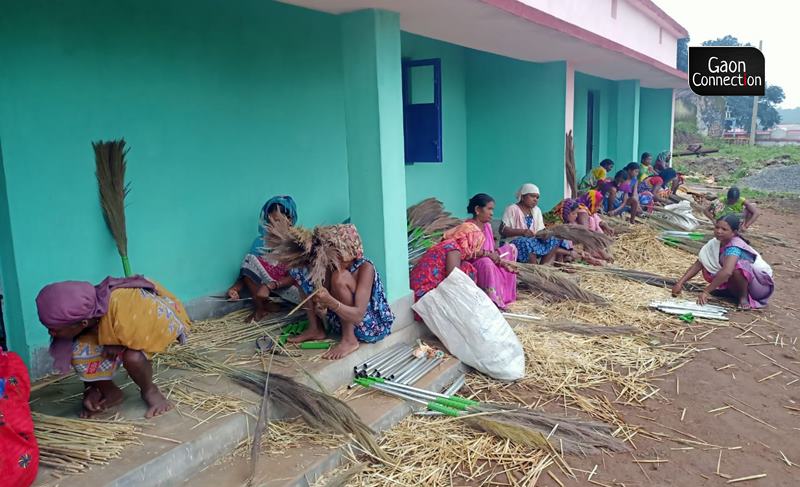
Additionally, the Odisha Rural Development and Marketing Society also organises trips for the craftspersons to visit other states where they sell their brooms at Craft Melas, Kartik added.
Also Read: Rural women in Shahjahanpur are turning their lives around, one straw at a time
“We are happy the government has provided us with proper training so that we can make brooms that people in towns and cities will want to buy,” Joshni Disari of Dankubeda village, told Gaon Connection. “We do not have to sell them for a song to the middlemen anymore. We are also being helped to sell the brooms we make,” the 50-year-old said happily.

